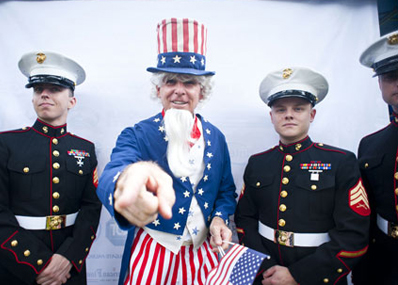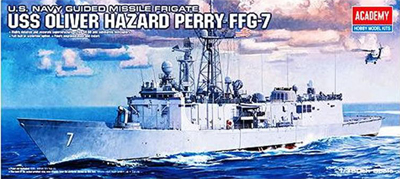
by Luis Roberto Zamora Bolaños
29 August 2010
from
VolatireNet Website
|
Translation: Verona Fonte
Source: Americas Program
Luis Roberto Zamora Bolaños is a Costa Rican trial lawyer. He has
litigated in promoting the Right to Peace, achieving constitutional
recognition in 2008. Prior to that, he successfully went to the Supreme
Court to force his country to withdraw the support given to the coalition
invasion of Iraq. Since 2005 he has participated in forums and conferences
in promoting the Right to Peace.
|
On 1 July 2010, Costa Rica’s Legislative
Assembly authorized the U.S. military to undertake policing duties
in Costa Rica, based on an expired “Cooperation Agreement.”
There is only one small problem: Costa
Rica abolished its armed forces in 1949 and since then has had no
standing army, national or foreign.
Lawyer and Right to Peace
advocate, Zamora Bolaños, analyses the repercussions of this
overturn - officially to fight drug trafficking - for his country
and its ramifications for the region.
SouthCom - Control of Latin
America

Uncle Sam and members of the U.S. Marine Corps security detail at the U.S.
Embassy in San José, Costa Rica,
were on hand to greet
celebrants at the 2010 Fourth of July picnic organized
by the American Colony
Committee on the grounds of the "Cervecería Costa Rica" in the locality of
Alajuela.
Costa Rica is world-renowned for its natural
environment, its political and democratic stability in a region of conflict,
it’s commitment to protecting human rights, and its peaceful and unarmed
neutrality in foreign affairs.
Throughout the country’s history since independence, Costa Rica has
distanced itself from the power struggles in the region, with only
occasional exceptions, including the U.S. invasion in 1856. The country has
grown alongside increasing indices of human development, which by the 1980s
had nearly reached First World levels.
In 1949, after its last internal conflicts, Costa Rica established a new
republic.
The Constitution prohibited an army and delegated the power to
“monitor and maintain public order” exclusively to civilian police forces.
The country became a leader in promoting human rights and the American
Convention on Human Rights was signed in San Jose, Costa Rica in 1969.
Later the Cold War turned hot in Central America and spread throughout the
isthmus. In the middle of pressure from the Nicaraguan Sandinistas and the
contras (counter-revolutionary forces) trained by the CIA, then-President
Luis Alberto Monge proceeded in November of 1983 to declare the permanent,
unarmed neutrality of Costa Rica vis a vis the violent conflicts of other
nations. This enabled the country to maintain peace in the midst of the wars
and conflicts of its neighbors, and to continue to develop within a region
that was collapsing.
Recently, Costa Rica became the first country in the world to recognize and
declare the Right to Peace.
Remarkably, this happened in the midst of a
process of destruction of the judicial apparatus that
the government of Oscar Arias put into practice, for which Costa Rica has been reported to the
Inter-American Commission on Human Rights under charges of judicial bias in
favor of former President Arias, his families and policies.
The Right to
Peace declaration was the result of two cases brought by the author before
the Constitutional Chamber of the Supreme Court of Justice.
The first case challenged the Costa Rican government’s support for the
coalition that invaded Iraq in 2003.
In this case, the Court annulled the
support, stating it violated the commitment to neutrality because it was a
unilateral act. It also declared that support for the U.S. invasion violated
the United Nations Charter and contradicted a fundamental principle of “the
Costa Rican identity”, which is peace as a fundamental value. Never before
had the court annulled the support of a government for an invasion.
The second case filed in October of 2008 concerns a decree issued by Oscar
Arias - a Nobel Peace Prize recipient - that authorized the extraction of
thorium and uranium, nuclear fuel development and the manufacture of nuclear
reactors “for all purposes.” The Court annulled the contested decree,
recognizing the existence of a Right to Peace, which had been violated by
the decree due to the fact that it contained elements directly related to
the “anti-value” of war.
The “Right to Peace” imposes both positive and negative obligations on the
State.
Positively, the State must promote international peace; negatively,
the State must refrain from authorizing war-related activities, including
entry, production, purchase, sale, storage, import, export, etc., of items,
goods or services made or intended to be used in a war. The Constitutional
Court of Costa Rica issued this decision.
Apart from the Costa Rican history, the world has been affected by multiple
problems, among them drug trafficking.
Unfortunately, in today’s world with
today’s politicians and their way of conducting what Plato called “the art
of governing,” drug trafficking has become a convenient “security excuse”
for achieving their own economic or hegemonic imperialist purposes.
Despite its legal obligations to peace, Costa Rica has not been an exception
to the rule. It simply needed a few servile puppet governments willing to do
anything for their own interests and that of their boss, to trample and
destroy the achievements of the sovereign people won through democratic
struggles and within the institutional framework.
The permission granted by the legislature to the United States military is
based on an agreement for joint maritime patrols between the U.S. and Costa
Rica that expired in October 2009.
This permit that ended in 2009 only allow
for Coast Guard patrols and never authorized the entry of the United States
military personnel and only covered coast guard missions.

However, the Legislature has now authorized the entry of 12,207 U.S.
soldiers and 46 military vessels, 45 armed with artillery.
Forty-three of
these are warships similar to the “Oliver Hazard Perry.” The ships carry 180
Sikorsky Blackhawk helicopters in the SH-60 and MH-60 categories designed
primarily for anti-submarine warfare, anti-surface warfare, naval special
warfare, combat search and rescue, among others.
In addition to the exorbitant sum of 180 helicopters, the entry of ten
McDonnell Douglas (Boeing) AV-8B Harrier II aircraft carriers was
authorized.
These are land attack planes (for supposed sea operations?) that
can carry on board 25 mm. Equalizer GAU-12 machine guns, four 70 mm.
LAU-5003 rocket launchers with a capacity of 19 CRV7 rockets, and six AGM-65
Maverick missiles or two AGM-84 Harpoon or two AGM-88 HARM. These ships may
also carry CDU-100 cluster bombs, Mark 80 unguided bombs, Paveway
laser-guided bombs or Mark 77 napalm bombs.
The agreement also grants permission for aircraft carriers such as the “Wasp
amphibious attack,” which are specifically assault ships.
Everything on the list of ships, aircraft, helicopters and troops detailed
above is designed and intended to be used in a war. Therefore, they cannot
be deployed in our country because the negative obligation requires the
State to reject them as elements that are counter to and in violation of the
Right to Peace.
The U.S. Embassy in Costa Rica says there is no problem because the United
States will not send all the equipment authorized.
Two points are important
here.
-
First, I do not believe the U.S. ambassador’s word on this
-
Second, the problem is not what the U.S.
sends; the problem is a domestic one, lying in what was authorized
to enter and operate within the country
Despite the legal limitations in the country, and despite a constitutional
obligation to invest only civilian police with the duties of monitoring and
enforcing our public order, the submissive legislative assembly - dominated by
the ruling parties - is allowing the U.S. military to play war games on our
sovereign land as if it were a game of chess.
As a Costa Rican, the saddest part of this situation, besides the
destruction of our history, is that we’re going to militarize the country
with foreign armies to protect the Colombian drugs and Venezuelan oil that
the United States consumes.
If the U.S. government’s purpose was really to
eliminate the drug problem, it would attack the problem where drugs are
grown or in countries closer to production.
The “war on drugs”
is nothing
more than an excuse for ulterior motives.
If there is a battle, the free
soil of this country of peace - a nation with no army and a pledge to
neutrality - will enable and facilitate the return of the Cold War that the
United States so badly needs for its survival.
The whole situation is grotesque, to me the lowest form of military
aggression in modern times.


